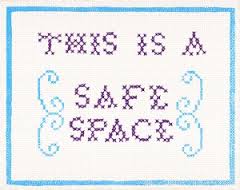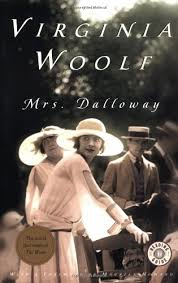Last Friday I attended a talk on campus by civil rights lawyer and and law professor Greg Lukianoff on issues of free speech, trigger warnings, and a related host of matters on college and university matters that are regularly in the news. He is the co-author of an article in The Atlantic a bit over a year ago that raised a lot of eyebrows and generated a lot of conversation. I wrote about it in the early weeks of my sabbatical last August:
I do not know how to teach philosophy without becoming a disturber of the peace Baruch Spinoza 
One of the lead articles in the most recent edition of The Atlantic magazine is “The Coddling of the American Mind.”
Lukianoff and Haidt: The Coddling of the American Mind
Co-authored by Greg Lukianoff and Jonathan Haidt, the teaser blurb for the article in the Table of Contents says “How a new strain of political correctness on campus is damaging higher education—and may be threatening students’ mental health.” It is an interesting read. Given Donald Trump’s current more-than-fifteen-minutes of fame, concerns about political correctness are in the news,  but in this article Lukianoff and Haidt are drawing our attention to what might be called “political correctness with a twist”:
but in this article Lukianoff and Haidt are drawing our attention to what might be called “political correctness with a twist”:
The current movement is largely about emotional well-being. . . . It presumes an extraordinary fragility of the collegiate psyche, and therefore elevates the goal of protecting students from psychological harm. The ultimate aim, it seems, is to turn campuses into “safe spaces” where young adults are shielded from words and ideas that make some uncomfortable. And more than the last, this movement seeks to punish anyone who interferes with that aim, even accidentally.
The authors’ argument is largely anecdotal, relying either on their own experiences or on recent anecdotal stories and essays from various campuses across the country.  There is a great deal of speculation about the causes of this perceived seismic psychological shift among students over the past couple of decades, although virtually no data is provided to substantiate many of the authors’ claims.
There is a great deal of speculation about the causes of this perceived seismic psychological shift among students over the past couple of decades, although virtually no data is provided to substantiate many of the authors’ claims.
In the first column of the article readers are introduced to two important terms that “have risen quickly from obscurity into common campus parlance: Microaggression and Trigger warnings. Microaggressions “are small actions or word choices that seem on their face to have no malicious intent but that are thought of as a kind of violence nonetheless.” Examples provided include asking an Asian American or Latino American “Where were you born?,” because this implies that she or he is not a real American.  Trigger warnings are “alerts that professors are expected to issue if something in a course might cause a strong emotional response”; examples of texts deemed as needing trigger warnings on various campuses include Virginia Woolf’s Mrs. Dalloway (suicidal inclinations) and Ovid’s Metamorphoses (sexual assault). The many examples of these and related problems in the article are chosen and presented with the clear intention of “triggering” the reader into concluding “well that’s just stupid—political correctness, like a hydra, rears a new ugly head.” One of the authors’ primary concerns, repeated frequently throughout the article is that such attention to words and actions that might possibly somewhere, somehow offend someone will leave students unprepared to live and work in a world that doesn’t give a crap about what makes them feel uncomfortable.
Trigger warnings are “alerts that professors are expected to issue if something in a course might cause a strong emotional response”; examples of texts deemed as needing trigger warnings on various campuses include Virginia Woolf’s Mrs. Dalloway (suicidal inclinations) and Ovid’s Metamorphoses (sexual assault). The many examples of these and related problems in the article are chosen and presented with the clear intention of “triggering” the reader into concluding “well that’s just stupid—political correctness, like a hydra, rears a new ugly head.” One of the authors’ primary concerns, repeated frequently throughout the article is that such attention to words and actions that might possibly somewhere, somehow offend someone will leave students unprepared to live and work in a world that doesn’t give a crap about what makes them feel uncomfortable.
What are we doing to our students if we encourage them to develop extra-thin skin in the years just before they leave the cocoon of adult protection and enter the workforce? Would they not be better prepared to flourish if we taught them to question their own emotional reactions, and to give people the benefit of a doubt?
Even though I have twenty-five years of college teaching under my belt, my experience on college campuses is deep but narrow, given that I have taught at my current college home for twenty-one years and have shaped my teaching and professional life within the confines of its “105 acre, park-like campus.” Serious conversations about the negative power of language on students in various groups defined racially, economically, by gender or by sexual preference have been ongoing on my campus for some time now. In my own philosophy department regular, continuing, and often heated debates occur about what constitutes appropriate and inappropriate language in the classroom, in job candidate interviews, and in basic conversation with each other. What strikes some as obviously benign, scholarly, and insightful strikes others as ill-advised, insensitive, and downright offensive. That said, the tsunami described by Lukianoff and Haidt as drowning campuses nationwide has escaped my notice where I teach—at least in my classrooms. Perhaps this is because I have included this general “trigger warning” in every syllabus for every one of my courses for at least the past fifteen years:
my experience on college campuses is deep but narrow, given that I have taught at my current college home for twenty-one years and have shaped my teaching and professional life within the confines of its “105 acre, park-like campus.” Serious conversations about the negative power of language on students in various groups defined racially, economically, by gender or by sexual preference have been ongoing on my campus for some time now. In my own philosophy department regular, continuing, and often heated debates occur about what constitutes appropriate and inappropriate language in the classroom, in job candidate interviews, and in basic conversation with each other. What strikes some as obviously benign, scholarly, and insightful strikes others as ill-advised, insensitive, and downright offensive. That said, the tsunami described by Lukianoff and Haidt as drowning campuses nationwide has escaped my notice where I teach—at least in my classrooms. Perhaps this is because I have included this general “trigger warning” in every syllabus for every one of my courses for at least the past fifteen years:
Ine this course we will be considering some of the most important questions a human being can ask. Perhaps the most important feature of our considerations is learning to ask these questions clearly and precisely. Only then can possible answers be considered fairly. Although I have definite positions on the questions we will be addressing, my role as professor is not to tell you what to think. My role is rather to get you to think. Expect your assumptions to be challenged and comfortable ways of thinking to be disturbed. As the great 17th century philosopher Spinoza once said, I do not know how to teach philosophy without becoming a disturber of the peace.
During an oral final exam a couple of semesters ago a student told me that “This class really messed me up—but in a good way!” Mission accomplished.
The new fall semester is just three weeks old–here’s a bit of advice related to safe spaces and learning for the incoming freshmen:
- Free speech dictates that everyone has the right to their opinion, but not all opinions are equal.
 One of the purposes of a liberal education is to help you become skillful at using the tools of lifetime learning; some of these tools, used properly, will help you learn how to distinguish a good argument from bullshit—even when it is your own argument. I often say that a liberally educated person earns the right to have an opinion. The process of earning that right begins with realizing that your opinion is not special just because it is yours, and without challenge and analysis it means nothing with regard to whether it is true (or even a defensible position).
One of the purposes of a liberal education is to help you become skillful at using the tools of lifetime learning; some of these tools, used properly, will help you learn how to distinguish a good argument from bullshit—even when it is your own argument. I often say that a liberally educated person earns the right to have an opinion. The process of earning that right begins with realizing that your opinion is not special just because it is yours, and without challenge and analysis it means nothing with regard to whether it is true (or even a defensible position). - In the life of learning, comfort is vastly overrated.
 Expect to encounter people, ideas, situations and expectations that are both unfamiliar and well outside your comfort zone. You should be looking for these rather than trying to avoid them. If you manage to make it through your undergraduate college career without changing any opinion, belief, perspective or attitude, then your tuition dollars have been wasted.
Expect to encounter people, ideas, situations and expectations that are both unfamiliar and well outside your comfort zone. You should be looking for these rather than trying to avoid them. If you manage to make it through your undergraduate college career without changing any opinion, belief, perspective or attitude, then your tuition dollars have been wasted. - The world of adulthood into which you are making your first, tentative forays can be a tough, nasty place. The world out there is full of people, ideas, things, and events that couldn’t care less if they lie within your current comfort zone.
 As my wife would say, the world is what it is. Your years in college are not so much about your landing a well-paying job after you graduate as they are about the construction of a powerful and flexible moral and psychological framework of belief and commitment, from within which you will engage with what’s “out there” on a daily basis. It is not the world’s responsibility to provide you with comfort and security. It is your task to create and maintain a moral and psychological home for yourself in that world using all of the resources available to you, resources to sustain you on a life-long journey. By the way, you’ll be making significant renovations and additions to this home your whole life. Your professors are here to assist you in the construction of that home—good luck!
As my wife would say, the world is what it is. Your years in college are not so much about your landing a well-paying job after you graduate as they are about the construction of a powerful and flexible moral and psychological framework of belief and commitment, from within which you will engage with what’s “out there” on a daily basis. It is not the world’s responsibility to provide you with comfort and security. It is your task to create and maintain a moral and psychological home for yourself in that world using all of the resources available to you, resources to sustain you on a life-long journey. By the way, you’ll be making significant renovations and additions to this home your whole life. Your professors are here to assist you in the construction of that home—good luck!
A liberal education, especially, inspires students to value struggle. By grappling with authors and ideas that demand the greatest level of intellectual intensity—and this is especially true in subjects that are difficult and uncongenial—students learn that they stretch themselves more through struggle, whether or not they win the match. Christopher Nelson












